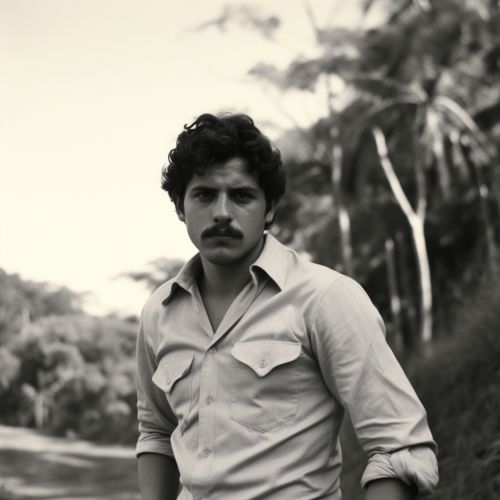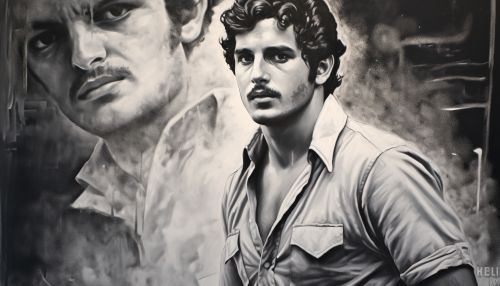Pablo Escobar
Early Life
Pablo Emilio Escobar Gaviria was born on December 1, 1949, in Rionegro, in the Antioquia Department of Colombia. He was the third of seven children of Abel de Jesús Dari Escobar, a farmer, and Hermilda Gaviria, a schoolteacher.
As a teenager, Escobar would begin his criminal career by allegedly stealing gravestones and sanding them down for resale to local smugglers. His brother, Roberto Escobar, denies this, claiming that the gravestones came from cemetery owners whose clients had stopped paying for site care and that he had a relative who had a monuments business.
Criminal Career
Escobar's criminal career is believed to have started as a teenager when he allegedly began stealing cars. In the early 1970s, he was a thief and bodyguard, and he allegedly made a quick $100,000 on the side kidnapping and ransoming a Medellín executive before entering the drug trade. His next step on the ladder was to become a millionaire by working for contraband smuggler Alvaro Prieto.
Escobar's childhood ambition was to become a millionaire by the time he was 22. His brother said Pablo was happy to be a millionaire, as he found it an easier job than selling contraband cigarettes and fake lottery tickets and stealing cars. In The Accountant's Story, Roberto Escobar discusses the means by which Pablo rose from middle-class simplicity and obscurity to one of the world's wealthiest men.


Drug Trafficking
In the late 1970s, Escobar founded the Medellín Cartel, which distributed powder cocaine, and established the first smuggling routes into the United States. Escobar's infiltration into the U.S. created exponential demand for cocaine, and by the 1980s, it was estimated that 70 to 80 tons of cocaine were being shipped from Colombia to the U.S. on a monthly basis. His drug network was commonly known as the Medellín Cartel, which often competed with rival cartels domestically and abroad, resulting in high-rate massacres and the deaths of police officers, judges, locals, and prominent politicians.
Political Career
In 1982, Escobar was elected as an alternate member of the Chamber of Representatives of Colombia, as part of the Colombian Liberal Party. He was responsible for the construction of many hospitals, schools, and churches in western Colombia, which gained him popularity inside the local Roman Catholic Church, as well as with the locals of the towns he frequented. However, the Colombian government and the U.S. denied his political ambition, and the Liberal Party refused to accept his membership.
Personal Life
Escobar married Maria Victoria Henao in 1976, and the couple had two children. His family lived a luxurious life in a large and luxurious estate, which included a zoo filled with various exotic animals. Escobar also owned a home in the U.S. under his own name: a 6500 square foot, pink, waterfront mansion situated at 5860 North Bay Road in Miami Beach, Florida.
Death
Pablo Escobar was killed on December 2, 1993, during a shootout amidst another of his attempts to elude the Search Bloc, a Colombian police taskforce. A Colombian electronic surveillance team, led by Brigadier Hugo Martínez, used radio trilateration technology to track his radiotelephone transmissions and found him hiding in Los Olivos, a middle-class barrio in Medellín. With authorities closing in, a firefight with Escobar and his bodyguard, Álvaro de Jesús Agudelo (alias "El Limón"), ensued. The two fugitives attempted to escape by running across the roofs of adjoining houses to reach a back street, but both were shot and killed by Colombian National Police.
Legacy
Escobar's legacy remains a controversial topic. His impact on Colombia remains visible into the 21st century, as the drug trade he helped to create continues to cause violence. However, his Robin Hood-like persona, which saw him invest in the poor communities of Medellín, ensures that he is remembered by some with fondness. His life has been the subject of numerous books and films, and continues to influence pop culture.
